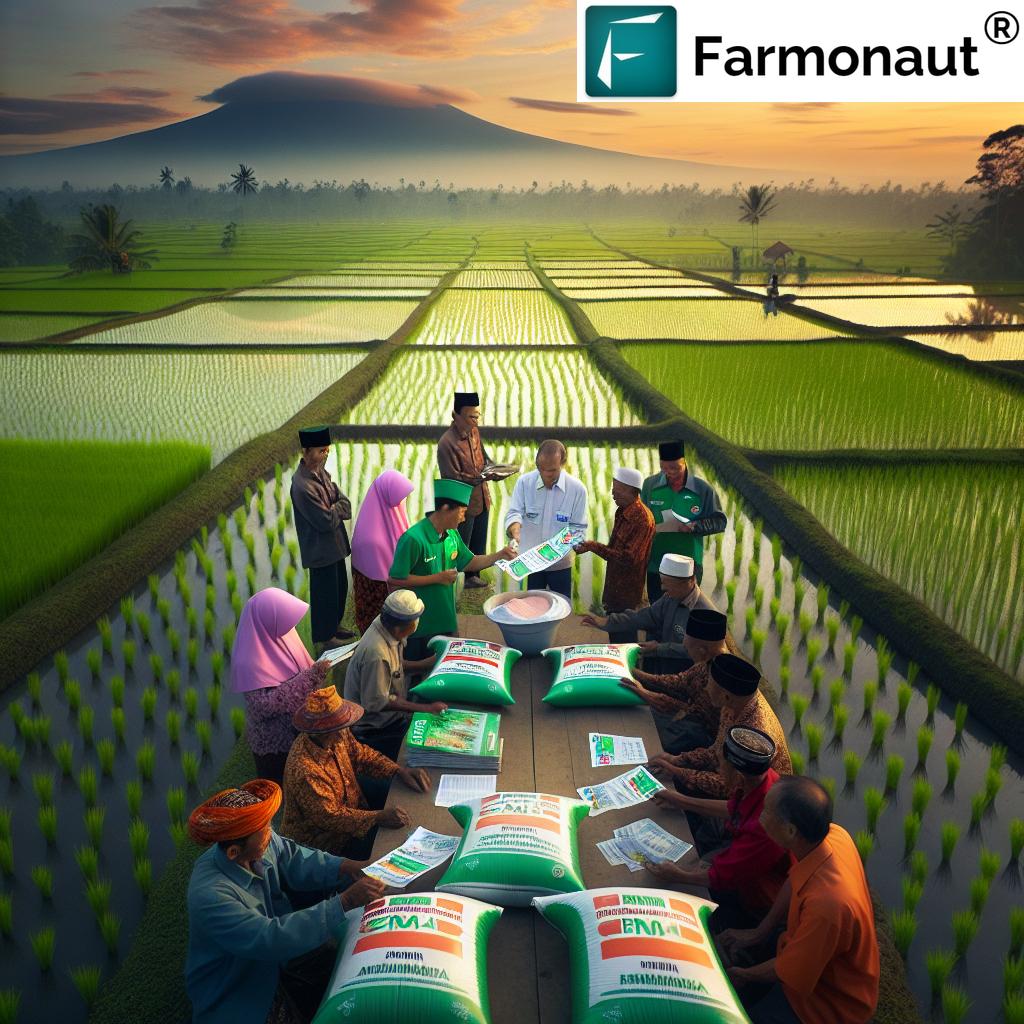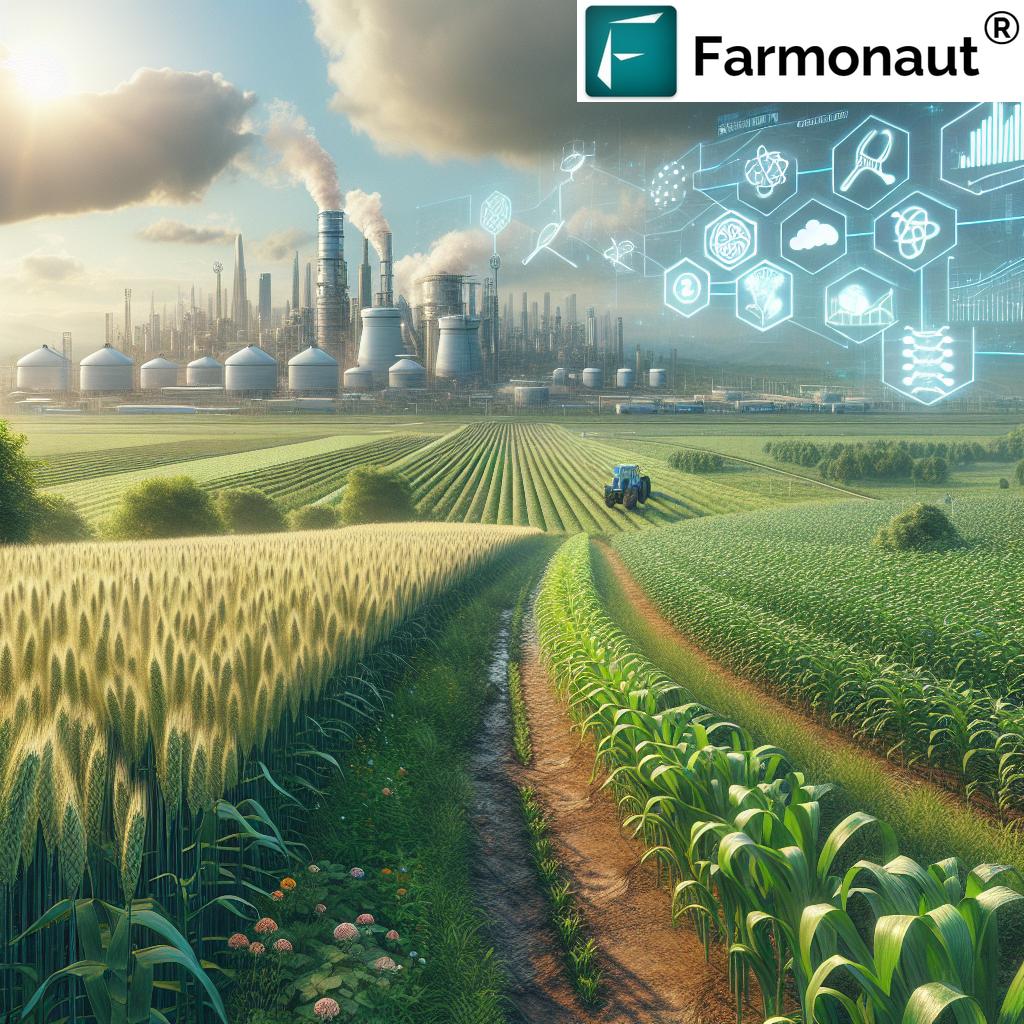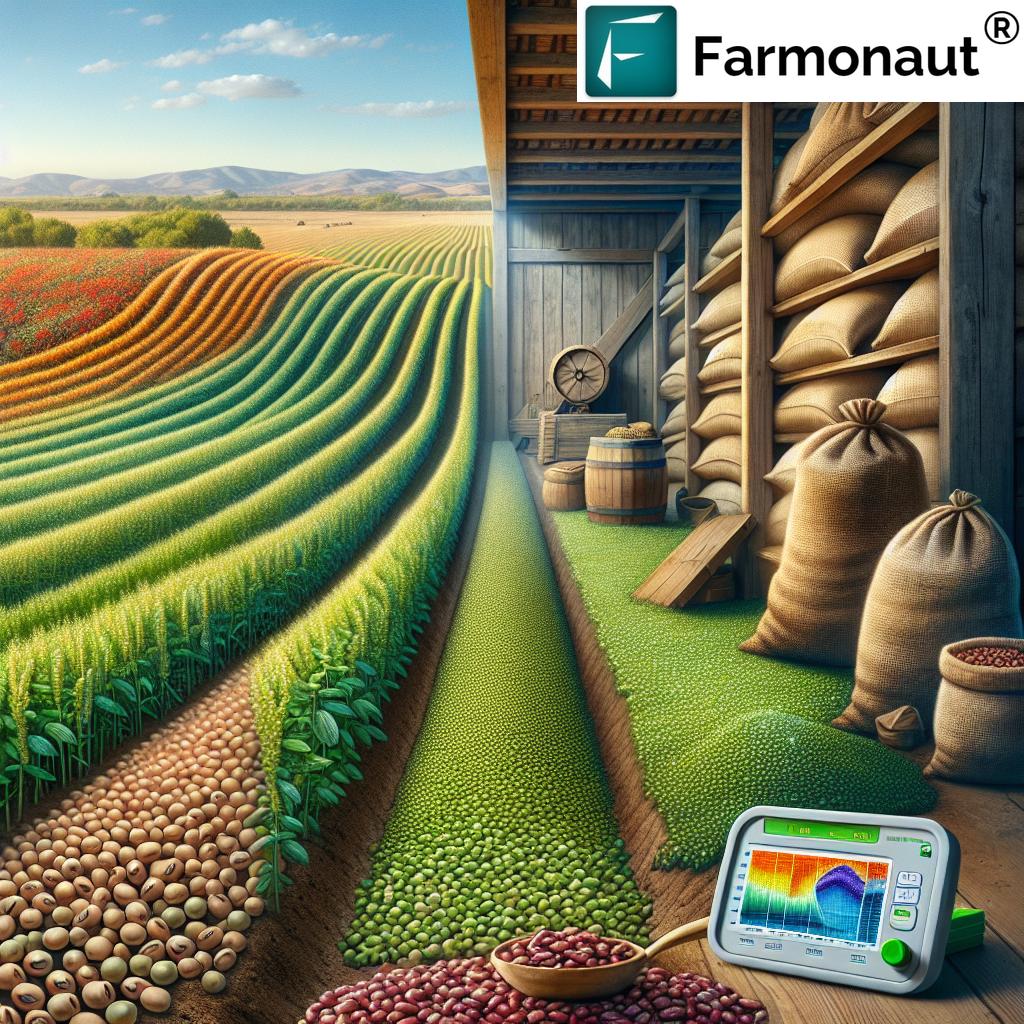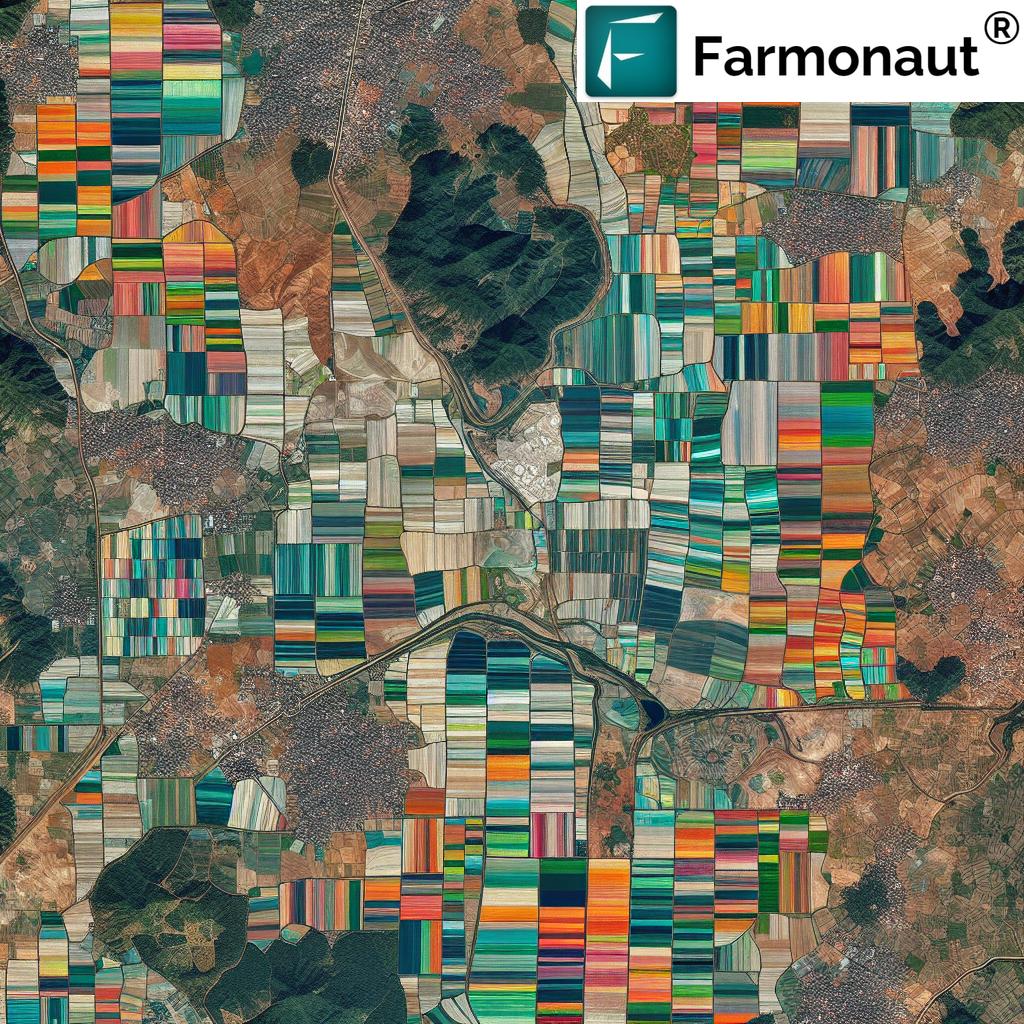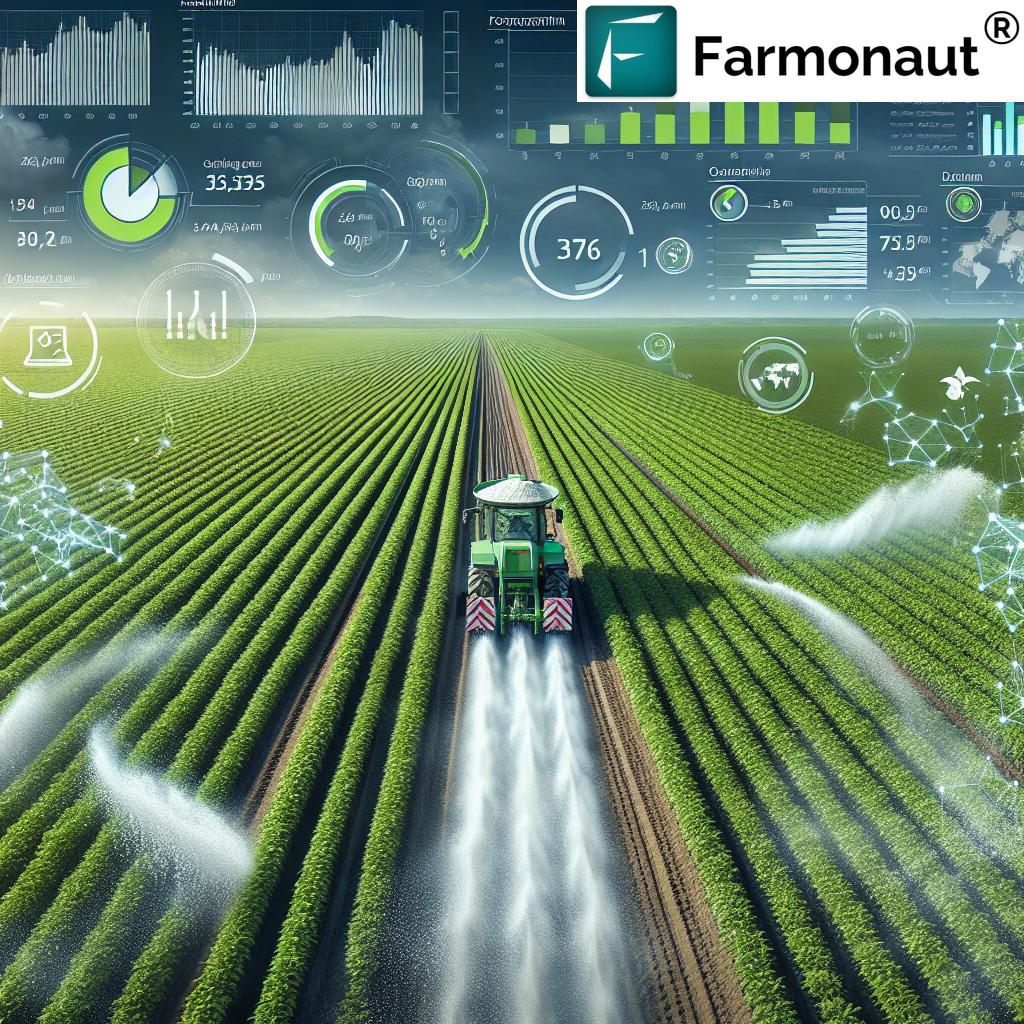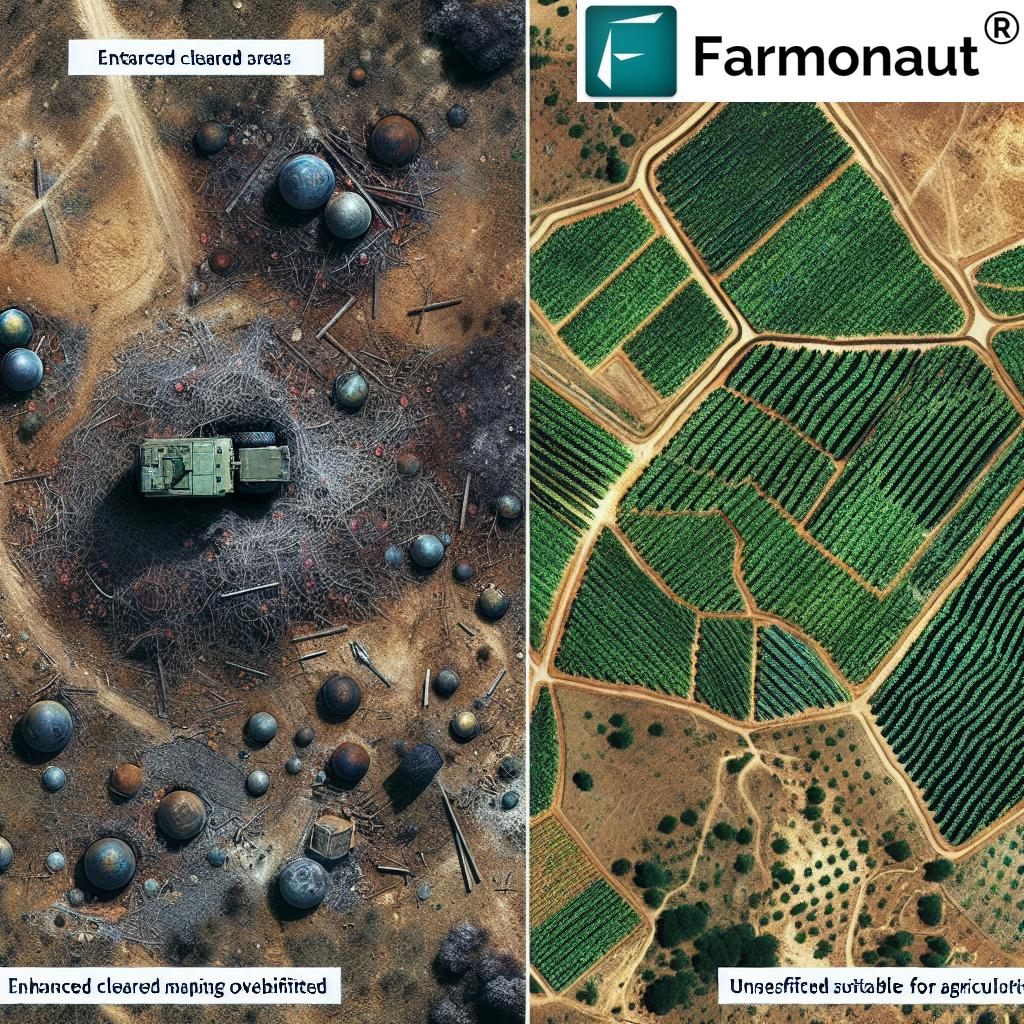Sustainable Carrot Farming in Beypazarı: Overcoming Water Scarcity and Optimizing Crop Yields in Turkey’s Agricultural Hub
“Beypazarı district in Turkey produces 40% of the nation’s carrots, making it a crucial agricultural hub.”
Welcome to an in-depth exploration of sustainable carrot farming in Beypazarı, Turkey’s agricultural powerhouse. At Farmonaut, we’re passionate about innovative farming techniques and sustainable agriculture. In this comprehensive blog post, we’ll delve into the challenges and triumphs of carrot production in this remarkable district, showcasing how modern agricultural methods are transforming the landscape of Turkish farming.
The Agricultural Significance of Beypazarı
Beypazarı, a district in Turkey with a population of around 50,000, has carved out a name for itself in the agricultural sector. This region is not just any farming area; it’s the heart of Turkey’s carrot production, accounting for an impressive 40% of the nation’s total carrot output. The significance of this cannot be overstated – it’s a testament to the district’s vast agricultural potential and the crucial role farming plays in the local economy.

Agriculture is the lifeblood of Beypazarı, providing livelihoods for about 30% of its residents. This enduring agricultural tradition underscores not only the district’s importance in Turkey’s vegetable sector but also highlights the potential for agricultural innovation and sustainability in the face of modern challenges.
The Year-Round Carrot Production Cycle
Carrot production in Beypazarı is not a seasonal affair; it’s a year-round endeavor that peaks during the winter months. This continuous production cycle is a testament to the region’s favorable climate and the farmers’ expertise in managing crop rotations and soil health.
- Winter Harvest: The busiest time for carrot harvesting, employing hundreds of seasonal workers
- Spring Planting: Preparation of fields and sowing of new carrot crops
- Summer Maintenance: Intensive care, including irrigation and pest management
- Autumn Transition: Late harvests and field preparation for the winter crop
This continuous cycle ensures a steady supply of fresh carrots to the market, contributing to Beypazarı’s reputation as a reliable agricultural center.
The Harvest Process: From Field to Market
The carrot harvest in Beypazarı is a well-orchestrated process that begins at dawn. Seasonal workers, skilled in the art of carrot harvesting, carefully extract the vegetables from the rich soil. The process involves several key stages:
- Harvesting: Workers manually harvest carrots, ensuring minimal damage to the produce.
- Initial Cleaning: Carrots undergo a rough cleaning in large water pools at modern washing facilities.
- Thorough Washing: A rigorous washing process ensures the carrots meet high-quality standards.
- Quality Classification: Carrots are sorted into three categories: large, crispy, and broken.
- Packaging: Each category is packaged according to market requirements.
- Storage or Distribution: Carrots are either stored in cold facilities or immediately transported to markets.
This meticulous process ensures that Beypazarı carrots maintain their renowned quality from field to consumer.
Quality Classification: A Key to Market Success
The quality classification of carrots is a crucial step in the post-harvest process. It not only ensures that consumers receive the best product but also maximizes the economic value of the harvest. The three main categories are:
- Large Carrots: Sold at premium prices in retail markets
- Crispy Carrots: Ideal for salads and fresh consumption
- Broken Carrots: Sold at lower prices, often used in processed foods
This classification system allows producers to cater to different market segments and minimize waste, contributing to the overall sustainability of the carrot farming industry in Beypazarı.
Cold Storage: Managing Supply and Demand
One of the key innovations in Beypazarı’s carrot industry is the use of cold storage facilities. These modern storage solutions play a crucial role in managing inventory and meeting market demands throughout the year. The benefits of cold storage include:
- Extended shelf life of carrots
- Ability to regulate market supply
- Maintenance of product quality
- Reduction of post-harvest losses
By utilizing cold storage, producers can strategically release their products to the market, helping to stabilize prices and ensure a consistent supply of high-quality carrots.
“High altitude and favorable climate contribute to Beypazarı carrots’ unique sweetness and crispiness, setting them apart in quality.”
The Unique Qualities of Beypazarı Carrots
Beypazarı carrots are not just any carrots; they are renowned for their exceptional quality, taste, and nutritional value. Several factors contribute to their unique characteristics:
- High Altitude: The district’s elevated location influences the carrot’s growth cycle.
- Favorable Climate: Ideal temperature ranges and sunlight exposure enhance flavor development.
- Soil Composition: Rich, well-draining soil contributes to optimal nutrient uptake.
- Traditional Farming Knowledge: Generations of farming expertise inform cultivation practices.
These factors combine to produce carrots with a distinctive sweetness and crispiness that are highly sought after in both local and national markets.
Challenges Facing Beypazarı’s Carrot Farmers
Despite the success of carrot farming in Beypazarı, farmers face significant challenges, with water scarcity being the most pressing issue. Let’s explore the main hurdles:
- Water Scarcity: Diminishing water resources pose a significant threat to crop yields.
- Rising Production Costs: Expenses for inputs and labor continue to increase.
- Market Price Fluctuations: Unpredictable market prices affect farmer incomes.
- Climate Change: Changing weather patterns impact crop growth and harvest times.
These challenges underscore the need for innovative solutions and sustainable farming practices in the region.
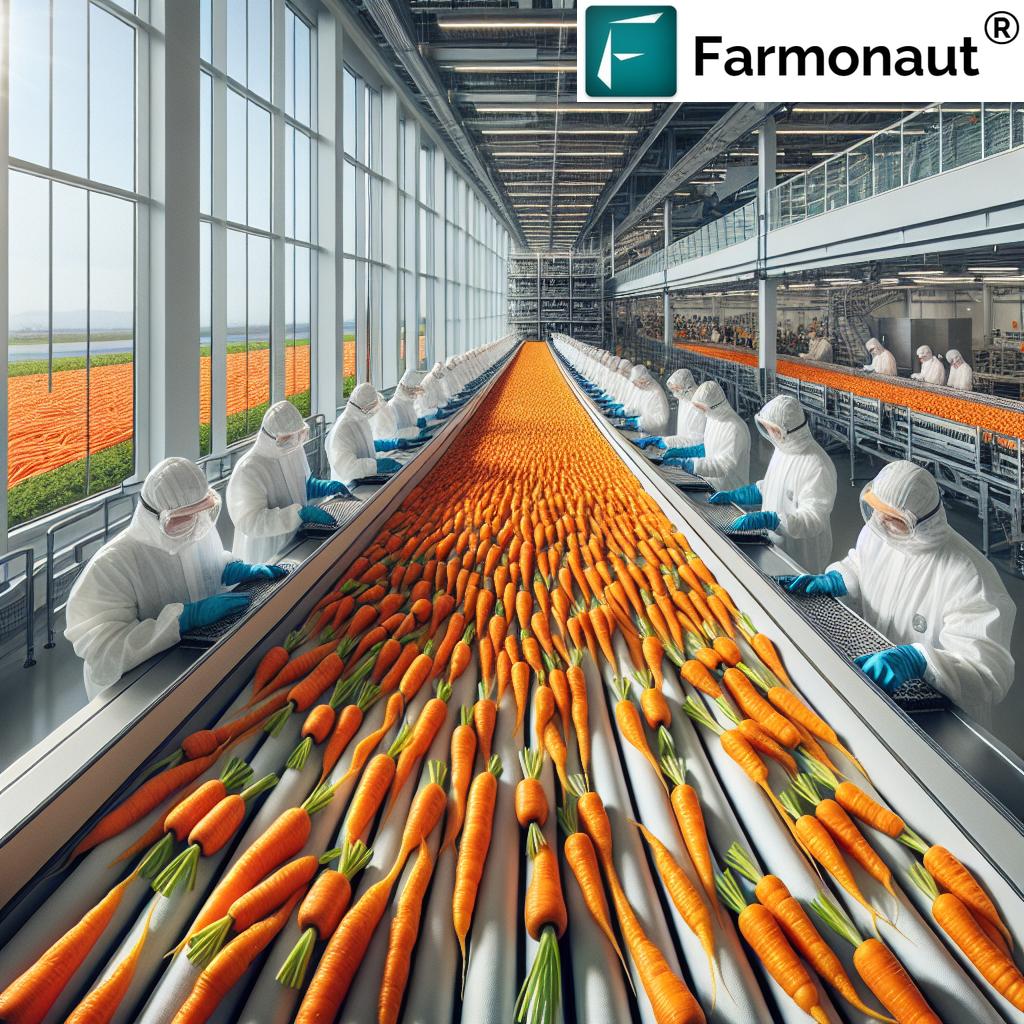
Addressing Water Scarcity: A Critical Challenge
Water scarcity is perhaps the most significant challenge facing Beypazarı’s carrot farmers. With limited water resources, farmers must find innovative ways to maintain their crop yields while conserving this precious resource. Some strategies being implemented include:
- Drip Irrigation: Efficient water delivery directly to plant roots
- Soil Moisture Sensors: Technology to optimize irrigation timing and volume
- Water-Retaining Soil Amendments: Improving soil’s water-holding capacity
- Drought-Resistant Carrot Varieties: Developing and planting more resilient crops
At Farmonaut, we understand the critical nature of water management in agriculture. Our satellite-based crop health monitoring system provides valuable insights into soil moisture levels, helping farmers make informed decisions about irrigation. By leveraging technology, we aim to support Beypazarı’s farmers in their efforts to overcome water scarcity challenges.
Explore our web app to see how satellite technology can revolutionize your farm management.
Optimizing Crop Yields: Balancing Tradition and Innovation
To maintain Beypazarı’s position as a leading carrot producer, farmers are increasingly turning to a blend of traditional knowledge and modern agricultural techniques. This approach aims to optimize crop yields while ensuring sustainability. Key strategies include:
- Precision Agriculture: Using data-driven insights for targeted farming practices
- Crop Rotation: Enhancing soil health and reducing pest pressures
- Integrated Pest Management: Combining biological and chemical controls for pest management
- Advanced Fertilization Techniques: Tailoring nutrient applications to crop needs
Farmonaut’s AI-powered advisory system, Jeevn AI, plays a crucial role in this optimization process. By analyzing satellite data and other inputs, we provide real-time insights and personalized recommendations to farmers, helping them make informed decisions about crop management.
Discover how our API can integrate cutting-edge agricultural insights into your farming operations.
The Economic Impact of Carrot Farming in Beypazarı
Carrot farming is not just an agricultural activity in Beypazarı; it’s a cornerstone of the local economy. The industry’s economic impact is multi-faceted:
- Employment: Provides jobs for about 30% of the district’s population
- Income Generation: A significant source of revenue for local farmers and businesses
- Export Contribution: Enhances Turkey’s agricultural export profile
- Supply Chain Development: Supports related industries like packaging and transportation
However, the economic landscape is not without its challenges. Farmers like Ali Osman Bozkaya, with 40 years of experience, highlight the rising costs of production. Current production costs exceed 25 liras per unit, while market prices fluctuate between 45 and 60 liras, creating a precarious economic situation for many farmers.
Sustainable Farming Practices: A Path Forward
As we look to the future of carrot farming in Beypazarı, sustainability must be at the forefront. Implementing sustainable practices is not just environmentally responsible; it’s economically essential for the long-term viability of the industry. Some key sustainable farming practices being adopted include:
- Conservation Tillage: Minimizing soil disturbance to improve soil health
- Organic Farming Methods: Reducing reliance on synthetic inputs
- Water Conservation Techniques: Implementing advanced irrigation systems
- Biodiversity Promotion: Encouraging beneficial insects and pollinators
At Farmonaut, we’re committed to supporting these sustainable practices through our technology. Our satellite-based monitoring and AI advisory systems help farmers implement precision agriculture techniques, reducing resource waste and optimizing inputs.
Ready to embrace sustainable farming? Download our app for Android or iOS to get started.
The Role of Technology in Modern Carrot Farming
Technology is playing an increasingly vital role in transforming carrot farming in Beypazarı. From precision agriculture to advanced monitoring systems, these technologies are helping farmers overcome challenges and optimize their operations:
- Satellite Imagery: Provides real-time crop health data
- IoT Sensors: Monitor soil conditions and crop growth
- AI-Powered Analytics: Offer predictive insights for farm management
- Automated Irrigation Systems: Ensure efficient water use
Farmonaut is at the forefront of this technological revolution in agriculture. Our platform integrates satellite imagery, AI, and machine learning to provide farmers with actionable insights, helping them make data-driven decisions to improve crop yields and resource efficiency.
Comparative Analysis: Traditional vs. Modern Carrot Farming in Beypazarı
| Farming Aspect | Traditional Method | Modern Method | Sustainability Impact | Yield Impact (%) | Water Usage (L/ha) |
|---|---|---|---|---|---|
| Irrigation | Flood irrigation | Drip irrigation | Highly positive | +20% | -40% |
| Pest Control | Blanket spraying | Integrated Pest Management | Positive | +15% | N/A |
| Soil Preparation | Deep plowing | Conservation tillage | Positive | +10% | -20% |
| Harvesting | Manual | Semi-automated | Neutral | +25% | N/A |
| Storage | Basic storage | Cold storage facilities | Positive | +30% | N/A |
This table illustrates the significant improvements that modern farming methods bring to carrot production in Beypazarı. The adoption of these techniques not only increases yields but also contributes to more sustainable farming practices, particularly in terms of water conservation.
The Future of Carrot Farming in Beypazarı
As we look to the future, Beypazarı is poised to maintain its status as a vital agricultural center in Turkey. However, to ensure long-term success, several key areas need to be addressed:
- Water Resource Management: Implementing advanced conservation techniques
- Technology Adoption: Embracing precision agriculture and AI-driven solutions
- Sustainable Practices: Balancing productivity with environmental stewardship
- Market Diversification: Exploring new markets and value-added products
- Farmer Education: Providing training on modern agricultural techniques
At Farmonaut, we’re committed to supporting this future vision. Our technology solutions are designed to help farmers navigate these challenges, providing them with the tools and insights needed to thrive in an evolving agricultural landscape.
Conclusion: Nurturing Sustainable Growth in Beypazarı’s Carrot Industry
Beypazarı’s carrot farming industry stands at a crucial juncture. While facing significant challenges, particularly water scarcity, the district has shown remarkable resilience and adaptability. By embracing sustainable practices and innovative technologies, Beypazarı’s farmers are not just maintaining their agricultural heritage but are also paving the way for a more sustainable and productive future.
The integration of traditional farming wisdom with modern agricultural techniques offers a promising path forward. As we’ve seen, solutions like precision irrigation, advanced crop monitoring, and sustainable pest management can significantly improve yields while conserving precious resources.
At Farmonaut, we’re proud to be part of this agricultural evolution. Our satellite-based monitoring systems and AI-driven insights are helping farmers make more informed decisions, optimize their resources, and increase their productivity. We believe that by combining the rich agricultural tradition of Beypazarı with cutting-edge technology, we can help ensure a bright and sustainable future for carrot farming in this vital Turkish agricultural hub.
As we move forward, it’s clear that the success of Beypazarı’s carrot industry will depend on continued innovation, sustainable practices, and the collaborative efforts of farmers, technologists, and policymakers. Together, we can overcome the challenges of water scarcity, climate change, and market fluctuations, ensuring that Beypazarı remains at the forefront of carrot production in Turkey and beyond.
The story of Beypazarı’s carrot farming is more than just an agricultural narrative; it’s a testament to human ingenuity, resilience, and the power of combining tradition with innovation. As we continue to support and empower farmers in this region, we look forward to seeing Beypazarı’s sweet and crispy carrots nourishing people across Turkey and around the world for generations to come.
FAQ Section
Q1: What makes Beypazarı carrots unique?
A1: Beypazarı carrots are known for their exceptional sweetness and crispiness, attributed to the district’s high altitude, favorable climate, and rich soil composition.
Q2: How does water scarcity affect carrot farming in Beypazarı?
A2: Water scarcity is a major challenge, impacting crop yields and increasing production costs. Farmers are adopting water-efficient techniques like drip irrigation to mitigate these issues.
Q3: What role does technology play in modern carrot farming in Beypazarı?
A3: Technology, including satellite imagery, IoT sensors, and AI-powered analytics, helps farmers optimize irrigation, monitor crop health, and make data-driven decisions to improve yields and resource efficiency.
Q4: How important is carrot farming to Beypazarı’s economy?
A4: Carrot farming is crucial to Beypazarı’s economy, providing employment for about 30% of the district’s population and contributing significantly to local income and Turkey’s agricultural exports.
Q5: What sustainable practices are being adopted in Beypazarı’s carrot farming?
A5: Sustainable practices include conservation tillage, organic farming methods, advanced water conservation techniques, and efforts to promote biodiversity in farming areas.


